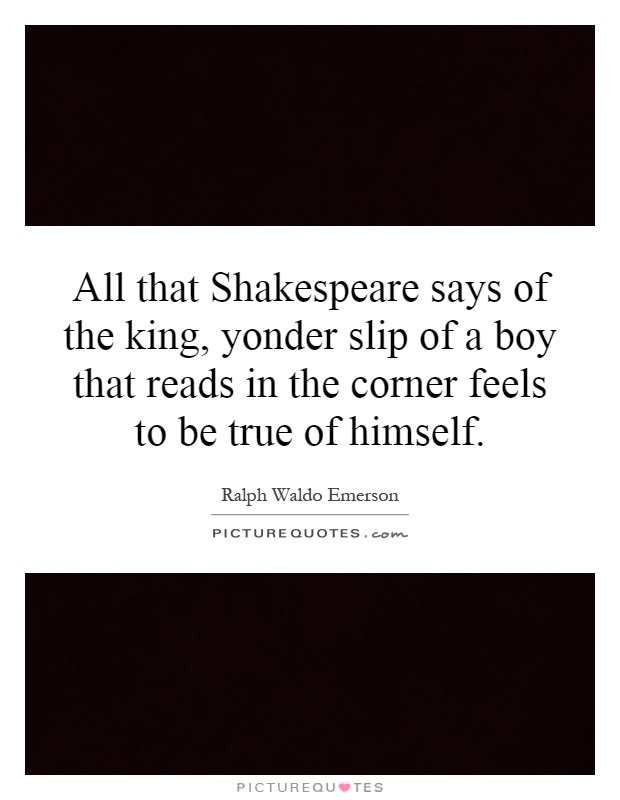All that Shakespeare says of the king, yonder slip of a boy that reads in the corner feels to be true of himself

All that Shakespeare says of the king, yonder slip of a boy that reads in the corner feels to be true of himself
Ralph Waldo Emerson, a prominent American essayist, lecturer, and poet, was known for his transcendentalist philosophy and his belief in the inherent goodness of individuals. In his works, Emerson often explored the themes of self-reliance, individualism, and the interconnectedness of all beings. When considering the statement, “All that Shakespeare says of the king, yonder slip of a boy that reads in the corner feels to be true of himself,” one can see how it resonates with Emerson’s ideas about the nature of the self and the universal truths that can be found in literature.Emerson believed that each person possessed a unique inner essence, or “oversoul,” that connected them to the divine and to all other beings. This idea of interconnectedness is reflected in the statement, as it suggests that the young boy reading in the corner can see himself reflected in the words of Shakespeare, despite the differences in their social status or life experiences. Emerson would likely argue that the boy recognizes something of himself in the king because they are both human beings with the capacity for greatness, wisdom, and self-awareness.
Furthermore, Emerson’s emphasis on self-reliance and individualism aligns with the idea that the boy can find truth and meaning in Shakespeare’s words without needing external validation or authority. Just as Emerson encouraged people to trust their own intuition and inner guidance, the boy in the statement is able to discern the truth of his own experience through his engagement with literature. By reading and reflecting on Shakespeare’s words, he is able to connect with a deeper sense of self and to recognize the universal themes and emotions that resonate across time and culture.












 Friendship Quotes
Friendship Quotes Love Quotes
Love Quotes Life Quotes
Life Quotes Funny Quotes
Funny Quotes Motivational Quotes
Motivational Quotes Inspirational Quotes
Inspirational Quotes